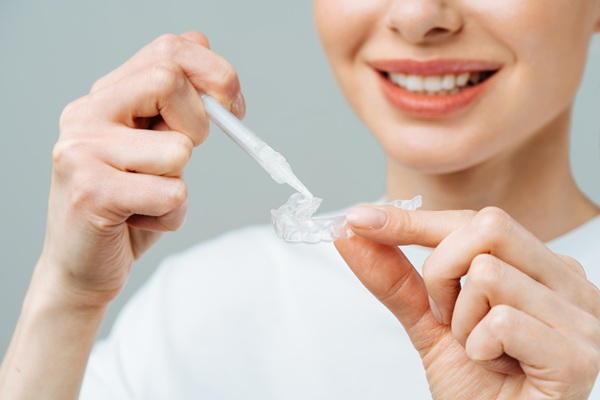How an Emergency Dentist Fixes a Broken Tooth

A broken tooth can happen at any time — during sports, while eating, or from an unexpected fall. Regardless of the cause, an emergency dentist can help. Through prompt treatment, these dental providers offer an effective way to relieve pain and protect oral health. An emergency dentist can also help prevent complications like infection, nerve exposure, and further structural damage to the smile.
Broken teeth: When to see an emergency dentist
A chipped, cracked, or otherwise broken tooth that causes discomfort, sensitivity, or interferes with daily function deserves timely attention. It is a good idea to see an emergency dentist if the break exposes inner layers of the tooth or causes sharp edges that may injure the tongue or cheeks. Doing so can help relieve pain and prevent further damage.
A general or family dentist who offers emergency care has the training to handle these time-sensitive dental issues. Keep in mind that a broken tooth may seem minor, but a hidden fracture beneath the surface could threaten the integrity of the tooth structure. That is why quick intervention often reduces the need for more complex procedures later.
An emergency dentist only treats non-life-threatening dental trauma. Call 911 or go to a hospital emergency room if the broken tooth is accompanied by intense pain, uncontrollable bleeding, or other life-threatening symptoms.
How emergency dentists treat broken teeth
An emergency dentist begins treatment by assessing the severity of the broken tooth. This often includes a physical examination and dental X-rays. If only the outer layer of the tooth (also known as enamel) is affected, smoothing the rough edge or applying dental bonding may do the job. For deeper cracks that extend into the inner layers (such as the dentin or the pulp), more involved care may be necessary.
An emergency dentist may place a dental crown to restore function and appearance to moderately broken teeth. However, if the pulp is damaged or exposed, the patient will likely need root canal therapy to save the tooth. Severe cases, where the tooth is fractured below the gum line, could require extraction and replacement with a dental implant or bridge.
Throughout this process, the emergency dentist ensures that the patient is as comfortable as possible. These general and family dentists can use local anesthetic to relieve pain, as well as modern tools for efficient and effective treatment.
Follow-up care after seeing an emergency dentist
Whether the issue was a minor chip or a major break, proper follow-up care after seeing an emergency dentist promotes healing. This may include not eating with the restored tooth for a day or so, being extra careful with oral hygiene, and monitoring for symptoms like swelling or sensitivity. A follow-up appointment with a general or family dentist also provides an opportunity for a professional opinion on how the restored tooth has healed. If needed, the dentist can provide adjustments or additional treatment.
Need help with a broken tooth?
A broken tooth can be a stressful experience, but the right support can make recovery easier and faster. An emergency dentist can address urgent dental needs with precision and professionalism. For help with a broken tooth, reach out to our Memphis team today.
Request an appointment here: https://memphisfamilydental.com or call Dental Partners Brookhaven at (901) 562-0510 for an appointment in our Memphis office.
Check out what others are saying about our dental services on Yelp: Emergency Dentist in Memphis, TN.
Related Posts
Wondering what an emergency dentist can do for you? Read on to learn more about this type of dental health professional. Dental emergencies can arise unexpectedly, causing significant discomfort and anxiety. An emergency dentist can help in such cases. They provide immediate care and relief by addressing urgent dental problems that cannot wait for a…
General dentists recommend adding flossing to your oral hygiene routine once a day. This important practice removes plaque and food debris that brushing alone cannot reach. While string floss is an effective way to clean between your teeth, several alternative methods can make the cleaning process more comfortable and efficient.Flossing is an essential part of…
Dental fillings are one of the most common ways that cavities are treated by dentists. For cavities that are mild to moderate, dental fillings are the most appropriate route to take. Additionally, it is one of the most straightforward procedures to perform. With that, it is helpful to have an understanding of what goes on…
Considering at-home teeth whitening? Many individuals experience a desire to whiten their teeth to rid them of stains. Whether it be at home or via a dental office, teeth whitening can make a significant difference when it comes to brightening one's smile.However, not everyone is in a position to undergo professional teeth whitening at a…


